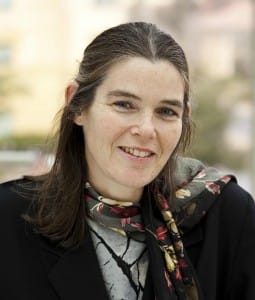To say that the Internet is transformational is an understatement. From social networking to news and research sites, the Internet has changed how we connect with friends and family and how we conduct business. And now, it promises to change the way we learn. Coursera is a free, groundbreaking tool that allows university professors to teach college-level courses to thousands around the world.
“This allows us to break away from the one-size-fits-all model of education,” Daphne Koller, co-founder of Coursera and a professor in computer science at Stanford, told a group of Penn faculty and students during a campus talk on Oct. 4.
With 1.5 million students, 33 participating universities and 198 course offerings, Coursera has already become immensely popular since its launch in the spring of 2012. Through Coursera, professors can disseminate knowledge much more efficiently than teaching to a few hundred students on a college campus. In fact, Koller stated, it would take one of her colleagues 250 years to teach the same number of students at Stanford as he reaches through one class of 100,000 students on Coursera.

Daphne Koller
According to Provost of the University of Pennsylvania Vincent Price, Penn—one of Coursera’s founding partner universities—views the platform as an “opportunity to share knowledge and our excellent teaching with the entire world.”
And Coursera does reach nearly every corner of the world. It has users in every country, with the exception of North Korea. While some countries’ education systems are plagued by structural inadequacies and capacity restrictions, Coursera is specifically programmed to handle very large classes. This gives all individuals with an Internet connection access to some of the best professors in the world—including those at Wharton and Penn.
But this new platform doesn’t signal the end of the university system as we know it. Coursera does not offer college credit, and the certificate a student receives after completing the course is not equivalent to a degree. But, whether degree-granting or not, Coursera offers remote areas of the world access to knowledge that they never had before.
According to Koller, this increase in access can change the world.
“It would make education something that is a basic human right rather than a privilege,” she said. “It would make education something that is a lifelong task, as opposed to something that you did once when you finished college or high school.”
“Finally, this allows innovation to come from anywhere,” she added. “The next Steve Jobs might be living in Africa or Bangladesh. … So if you give that person access to this kind of education, allowing them to live up to their potential, then maybe they will come up with the next big idea and make the world a better place for all of us.”


























